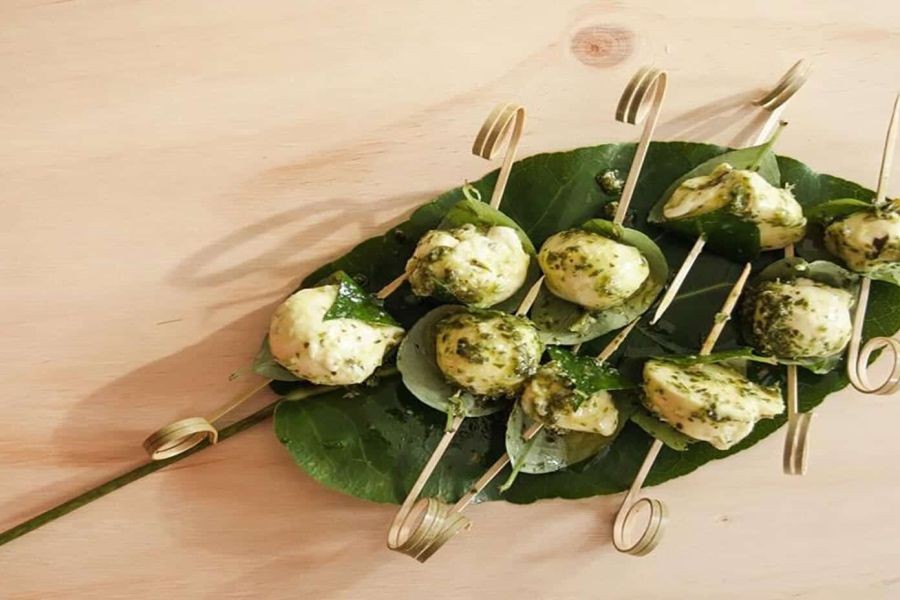The culinary landscape in New Zealand is experiencing a revolution as Māori cuisine gains prominence. This resurgence not only celebrates indigenous ingredients but also offers new opportunities for local businesses. With New Zealand's economy heavily reliant on tourism and agriculture, integrating Māori cuisine could provide a unique selling proposition. This article examines the rise of Māori cuisine, evaluates its impact on local businesses, and offers strategic insights for leveraging this trend.
The Allure of Māori Cuisine
In recent years, there has been a global shift towards cultural authenticity and unique culinary experiences. Māori cuisine, rooted in traditional ingredients like kumara, pūhā, and kai moana, offers a fresh and authentic taste that appeals to both locals and international tourists. According to data from Tourism New Zealand, cultural tourism is on the rise, with a 30% increase in visitors seeking indigenous experiences.
Māori cuisine is no longer confined to cultural festivals or historical discussions. It is rapidly emerging as one of the most influential forces shaping New Zealand’s food identity, hospitality industry, and global culinary reputation. From fine dining to everyday food products, indigenous ingredients and Māori-led food practices are redefining what modern New Zealand cuisine looks like — and businesses that overlook this shift risk being left behind.
A Cultural Revival with Modern Relevance
At its core, Māori cuisine is grounded in whakapapa (genealogy), kaitiakitanga (guardianship of the land), and manaakitanga (hospitality). These values shape how food is sourced, prepared, and shared. Rather than following fleeting food trends, Māori food systems reflect thousands of years of environmental knowledge and sustainable practice.
Today, Māori chefs, growers, and food entrepreneurs are reintroducing traditional ingredients such as kūmara varieties, horopito, kawakawa, pūhā, pikopiko, and native seafood — often reimagined through contemporary techniques that resonate with modern diners.
This is not nostalgia. It is innovation rooted in identity.
Indigenous Ingredients Are Gaining Global Attention
International markets are increasingly drawn to foods that are authentic, traceable, and ethically produced. Indigenous ingredients from Aotearoa offer all three.
Native herbs like horopito and kawakawa are now appearing in high-end kitchens, wellness products, and export food lines. Traditional fermentation, earth-oven cooking, and seasonal harvesting align closely with global movements toward regenerative agriculture and slow food.
For global consumers seeking meaning behind what they eat, Māori cuisine offers a powerful story — one that combines provenance, sustainability, and culture.
Why This Matters for New Zealand’s Food and Hospitality Industry
Ignoring the rise of Māori cuisine is not just a cultural oversight; it’s a strategic one.
Restaurants, food producers, and tourism operators who fail to engage respectfully with indigenous food knowledge may miss opportunities to:
Differentiate their offerings in an increasingly competitive market
Meet growing demand for sustainable and ethically sourced food
Appeal to international visitors seeking authentic New Zealand experiences
Build stronger relationships with Māori businesses and communities
Conversely, those who collaborate genuinely with Māori growers, chefs, and iwi-led enterprises can unlock innovation, credibility, and long-term resilience.
The Risk of Superficial Adoption
There is, however, a critical distinction between embracing Māori cuisine and appropriating it.
Industry experts and Māori leaders consistently emphasise that indigenous food knowledge must be engaged with respectfully. This means partnership, permission, and proper attribution — not simply adding native ingredients to menus without understanding their significance.
Businesses that rush to capitalise without cultural literacy risk reputational damage, loss of trust, and long-term harm. In contrast, those who invest in relationships and education gain authenticity that cannot be replicated.
A Growth Path Rooted in Kaitiakitanga
Māori cuisine offers more than flavours; it offers a framework for the future. The principles of kaitiakitanga encourage sustainable harvesting, biodiversity protection, and intergenerational thinking — values increasingly demanded by consumers and regulators alike.
As climate pressures, supply chain disruptions, and ethical scrutiny intensify, food systems grounded in indigenous knowledge may prove more resilient than industrial models built solely on efficiency.
What Forward-Thinking Leaders Are Doing Now
Across Aotearoa, change is already underway:
Māori-led restaurants are setting new standards in fine dining
Iwi-owned food producers are expanding into premium export markets
Culinary schools are incorporating indigenous food education
Tourism experiences are centring storytelling through kai (food)
These initiatives demonstrate that Māori cuisine is not a niche trend — it is a foundational pillar of New Zealand’s evolving food economy.
Final Thoughts
The rise of Māori cuisine and indigenous ingredients represents a profound shift in how New Zealand understands food, identity, and value. This movement is about more than taste; it’s about culture, sustainability, and future-proofing industries in a changing world.
For businesses, chefs, and decision-makers, the message is clear: engaging respectfully with Māori cuisine is not optional. Those who ignore it risk missing one of the most meaningful and commercially relevant transformations in New Zealand’s culinary landscape.
Case Study: Hiakai – Bridging Tradition and Innovation
Hiakai, a Wellington-based restaurant, exemplifies the successful integration of Māori cuisine into contemporary dining. Founded by award-winning chef Monique Fiso, Hiakai faced the challenge of introducing indigenous ingredients to a modern audience.
Problem: The restaurant needed to educate customers about the value and taste of traditional Māori ingredients.
Action: Hiakai crafted a menu that combined traditional Māori cooking techniques with modern culinary methods. This approach included storytelling as part of the dining experience, connecting guests with the cultural significance of each dish.
Result: Within a year, Hiakai reported a 50% increase in patronage and received international acclaim, with features in international publications like The New York Times.
Takeaway: The successful fusion of traditional and contemporary can attract new customer segments and elevate brand positioning. New Zealand businesses can replicate this by incorporating storytelling and cultural education into their offerings.
Pros and Cons of Adopting Māori Cuisine
Pros
- Unique Market Position: Businesses can differentiate themselves with a unique cultural offering.
- Economic Growth: Supporting indigenous agriculture can stimulate local economies, as seen with a 15% rise in demand for native produce (Stats NZ, 2023).
- Cultural Heritage Preservation: Promotes the preservation of Māori culture and traditions.
Cons
- Supply Chain Challenges: Limited availability of certain indigenous ingredients can affect supply consistency.
- Educational Barriers: Consumers unfamiliar with Māori cuisine may require education and exposure.
- Cost Implications: Sourcing traditional ingredients can be more expensive than conventional options.
Debunking Myths About Māori Cuisine
Myth: Māori cuisine is just a trend.
Reality: With roots deeply embedded in New Zealand’s history, Māori cuisine is a sustained movement towards cultural recognition and inclusion.
Myth: Indigenous ingredients are inaccessible.
Reality: Initiatives like the Māori Agricultural Development Fund have improved access to indigenous crops, making them viable for businesses.
Future Trends and Predictions
As the demand for authentic cultural experiences grows, Māori cuisine is poised to become a staple in New Zealand's food industry. By 2026, the Ministry of Business, Innovation and Employment predicts that cultural tourism will contribute an additional $1 billion to the economy. Businesses that adopt Māori cuisine early stand to gain a competitive edge.
Conclusion: Embracing Māori Cuisine for Business Growth
The rise of Māori cuisine presents a unique opportunity for local businesses to differentiate themselves in a competitive market. By embracing indigenous ingredients, businesses can not only cater to the growing demand for authentic cultural experiences but also contribute to the preservation of Māori heritage. As this trend continues to gain momentum, businesses that integrate Māori cuisine into their offerings will likely see enhanced customer engagement and economic benefits.
Final Takeaway: To leverage the rise of Māori cuisine, businesses should focus on education, storytelling, and collaboration with indigenous communities. This approach will ensure a sustainable and culturally respectful integration into the New Zealand culinary scene.
People Also Ask
- How does Māori cuisine impact businesses in New Zealand? Māori cuisine offers businesses a unique cultural selling point, enhancing customer engagement and contributing to economic growth through increased demand for indigenous produce.
- What are the biggest misconceptions about Māori cuisine? One common myth is that Māori cuisine is a transient trend. Research shows it's a long-term movement towards cultural inclusion and recognition.
- What are the best strategies for implementing Māori cuisine? Experts recommend starting with local ingredient sourcing, incorporating cultural storytelling, and collaborating with Māori communities for sustainable integration.
Related Search Queries
- Māori cuisine restaurants in New Zealand
- Indigenous ingredients in modern cooking
- Benefits of cultural tourism in New Zealand
- How to integrate Māori ingredients in menus
- Successful Māori cuisine case studies






































CodeBelgium
3 months ago